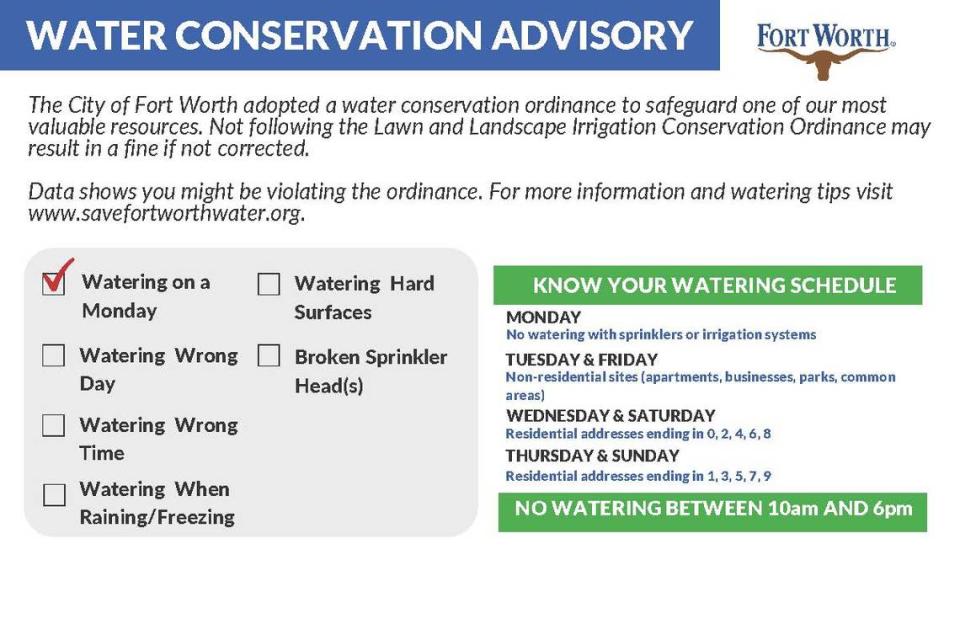Watering on the wrong day? Fort Worth is using new meters to watch you
The city of Fort Worth knows if you’ve been using your sprinklers to water your lawn on days when you’re not supposed to, and is asking you kindly to stop.
The water department using its recently installed smart water meter system to target homes and businesses that use 300 or more gallons of water per hour on Mondays, when watering is not allowed.
It’s part of an effort to raise awareness of the city’s nearly decade-old water restrictions and encourage residents to conserve water.
While its not definitive proof of an unauthorized lawn watering, water department spokesperson Mary Gugliuzza said the 300 gallons per hour benchmark is a good indication that might be what’s happening.
The amount is equal to about 150 toilet flushes from a newer model toilet, and three times the average amount a person uses in a day, according to water conservation campaign Water Is Awesome.
The city has noted fined people for the violations.
Instead it is using the data from the smart meters to send informational cards to high water users to help them comply with the city’s water restrictions. The city has sent 6,000 cards each of the past three weeks.

Fort Worth has had year-round outdoor watering restrictions since 2013, but has relied on complaints to catch violators.
The smart meters allow the city to remotely monitor which residents are using high amounts of water when watering is restricted.
Watering with a sprinkler system is prohibited on Mondays, and restricted to certain users and times the other six days of the week.
The water department would have to follow up with an in-person inspection before writing a ticket.
“We want people to realize that water is a finite resource, and we just need to be able to use it as efficiently as we can all of the time,” Gugliuzza said.
Gugliuzza said the city could use the smart meters to target enforcement if drought conditions worsen.
Roughly 92% of Tarrant County is in exceptional drought, according to the U.S. Drought Monitor.
However, drought restrictions in Fort Worth don’t kick in until reservoirs drop below 75%.
Water levels in the region’s three main reservoirs were hovering around 80% as of Thursday, according to data from the Tarrant Regional Water District.

 Yahoo Movies
Yahoo Movies 
